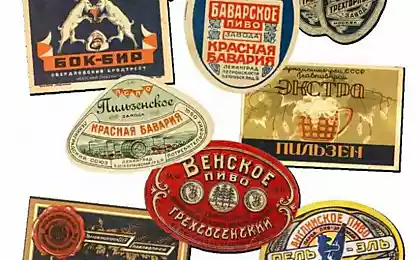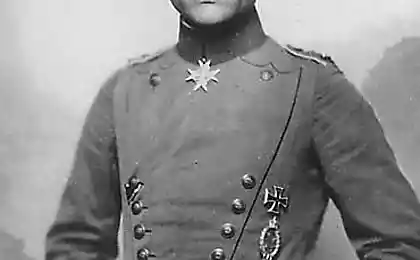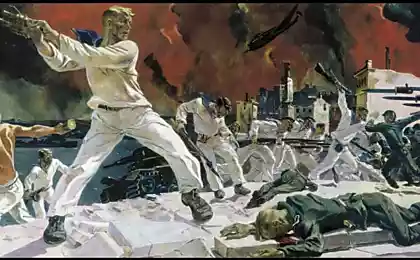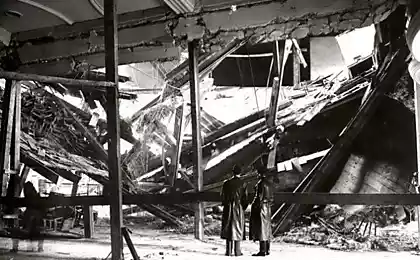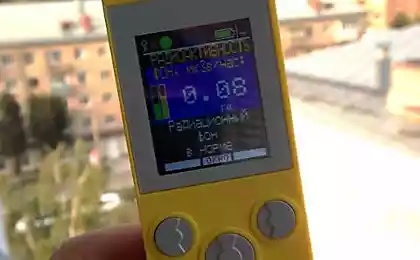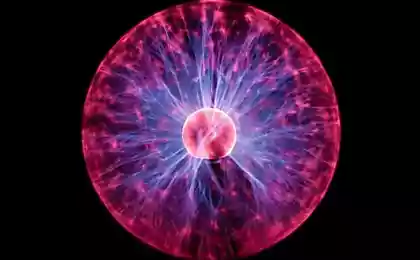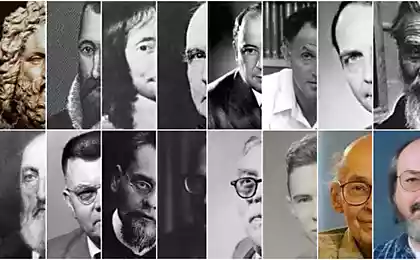532
Background Vakano - the progenitor of "Zhiguli"
It is a memorial plaque on the wall Zhiguli Brewery. It seemed to me that the first guild merchant Alfred von Vakano Philippovich looking at Samara team with a bitter reproach.
Austrian nobleman arrived in Russia to open a business. He took Russian citizenship, and he asked him for his six children. Leased land with abandoned factory building on it, he repaired them, launched at the enterprise the first power plant in Samara. Zhiguli Brewery has supplied its products in 60 cities in Russia, considered the third-largest brewery of the country. Plant background Vakano was exemplary enterprise with advanced at the time the organization of work and life of workers. By 1914, production of the Zhiguli Brewers was awarded 15 top awards, including at the international exhibitions of brewing in Paris (1900.), London (1902 and 1903) and in Rome (1903.).
Background Vakano much involved in charity work - gave a shelter for homeless children one of their land, helped by means of the Russian Red Cross, was the head of craft orphanage-school for the homeless, helping the disabled Russian-Japanese War, was a member of the Samara branch of guardianship of Empress Maria Alexandrovna of the Blind .
Putting a model brewery and head on it orders, some never seen in the region, background Vakano began to expand the scope of its activities, seeking to draw it for the benefit of the city. In April 1898 he appealed to the city council with a letter which read: "work and laboring in the continuation of the 18 years here in Samara, animated by the desire within my powers and opportunities to take part in the decoration of our city, which has for me the value of a second homeland. I am sure that will give a better view of the area around the theater, arrange a gentle slope from the street instead of the existing along Noblemen Strukovsky obustroy garden and a children's playground behind the Drama ».
At the beginning of the First World War, Alfred Philippovich at his own expense built and opened a hospital for wounded 35 beds, have committed themselves to contain and treat coming back throughout the war.
What is repaid citizens such decent man in all respects? In response to growing anti-German sentiment after the war, in July 1914, he was put under secret police surveillance, and in October 1915, accused of espionage and expelled from Samara. In connection with the adoption of prohibition at the plant almost stopped to brew beer and placed various foreign production, such as factories and warehouses grenade ammunition.
But the misadventures background Vakano not over. After the October Revolution, his company was nationalized, that really meant the destruction of the plant - in the spring of 1919 from him almost nothing left, the equipment taken away, the building fell into disrepair and became fully orphaned. By this time, Alfred Fillipovich realized that the more he has nothing to do in Russia and returned to his home in Austria. He died in türnitz in 1929. His sons in the NEP years tried to revive production and even managed to set up production of beer, but in 1928 they have again taken away and made the shares of the brewery became the property of the state.
2 Photo © drugoi
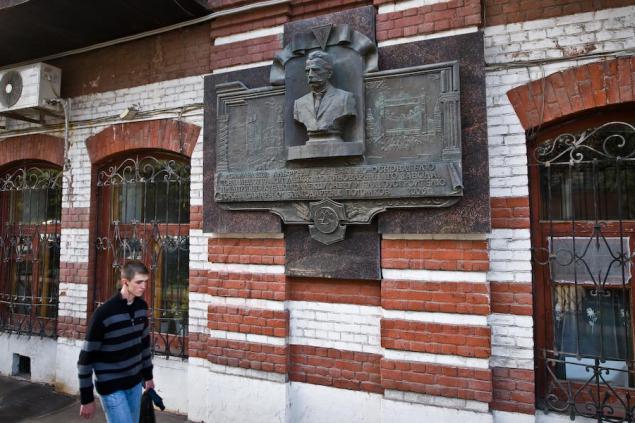
In 1934, the people's commissar of food industry, Anastas Mikoyan, who visited the plant, ordered to change the "bourgeois" titles beers. "Vienna" was a "Zhiguli", "Munich" - "Ukrainian", "Pils" - "Riga". In 1936 it was developed a universal recipe for a light beer, which could produce all the factories of the country. The basis taken "Zhiguli", which thus became the most famous in the Soviet Union, a kind of "popular" brand. But that's another story.
This picture shows the corner of the factory building is a place that is in Samaria called "down". There is bottled "Zhiguli."
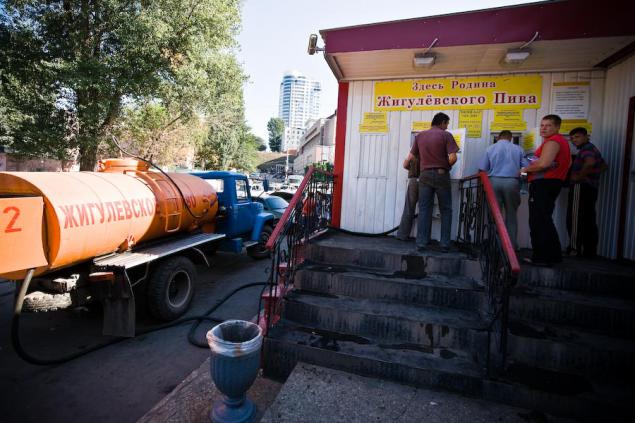
Source:
Austrian nobleman arrived in Russia to open a business. He took Russian citizenship, and he asked him for his six children. Leased land with abandoned factory building on it, he repaired them, launched at the enterprise the first power plant in Samara. Zhiguli Brewery has supplied its products in 60 cities in Russia, considered the third-largest brewery of the country. Plant background Vakano was exemplary enterprise with advanced at the time the organization of work and life of workers. By 1914, production of the Zhiguli Brewers was awarded 15 top awards, including at the international exhibitions of brewing in Paris (1900.), London (1902 and 1903) and in Rome (1903.).
Background Vakano much involved in charity work - gave a shelter for homeless children one of their land, helped by means of the Russian Red Cross, was the head of craft orphanage-school for the homeless, helping the disabled Russian-Japanese War, was a member of the Samara branch of guardianship of Empress Maria Alexandrovna of the Blind .
Putting a model brewery and head on it orders, some never seen in the region, background Vakano began to expand the scope of its activities, seeking to draw it for the benefit of the city. In April 1898 he appealed to the city council with a letter which read: "work and laboring in the continuation of the 18 years here in Samara, animated by the desire within my powers and opportunities to take part in the decoration of our city, which has for me the value of a second homeland. I am sure that will give a better view of the area around the theater, arrange a gentle slope from the street instead of the existing along Noblemen Strukovsky obustroy garden and a children's playground behind the Drama ».
At the beginning of the First World War, Alfred Philippovich at his own expense built and opened a hospital for wounded 35 beds, have committed themselves to contain and treat coming back throughout the war.
What is repaid citizens such decent man in all respects? In response to growing anti-German sentiment after the war, in July 1914, he was put under secret police surveillance, and in October 1915, accused of espionage and expelled from Samara. In connection with the adoption of prohibition at the plant almost stopped to brew beer and placed various foreign production, such as factories and warehouses grenade ammunition.
But the misadventures background Vakano not over. After the October Revolution, his company was nationalized, that really meant the destruction of the plant - in the spring of 1919 from him almost nothing left, the equipment taken away, the building fell into disrepair and became fully orphaned. By this time, Alfred Fillipovich realized that the more he has nothing to do in Russia and returned to his home in Austria. He died in türnitz in 1929. His sons in the NEP years tried to revive production and even managed to set up production of beer, but in 1928 they have again taken away and made the shares of the brewery became the property of the state.
2 Photo © drugoi

In 1934, the people's commissar of food industry, Anastas Mikoyan, who visited the plant, ordered to change the "bourgeois" titles beers. "Vienna" was a "Zhiguli", "Munich" - "Ukrainian", "Pils" - "Riga". In 1936 it was developed a universal recipe for a light beer, which could produce all the factories of the country. The basis taken "Zhiguli", which thus became the most famous in the Soviet Union, a kind of "popular" brand. But that's another story.
This picture shows the corner of the factory building is a place that is in Samaria called "down". There is bottled "Zhiguli."

Source:
